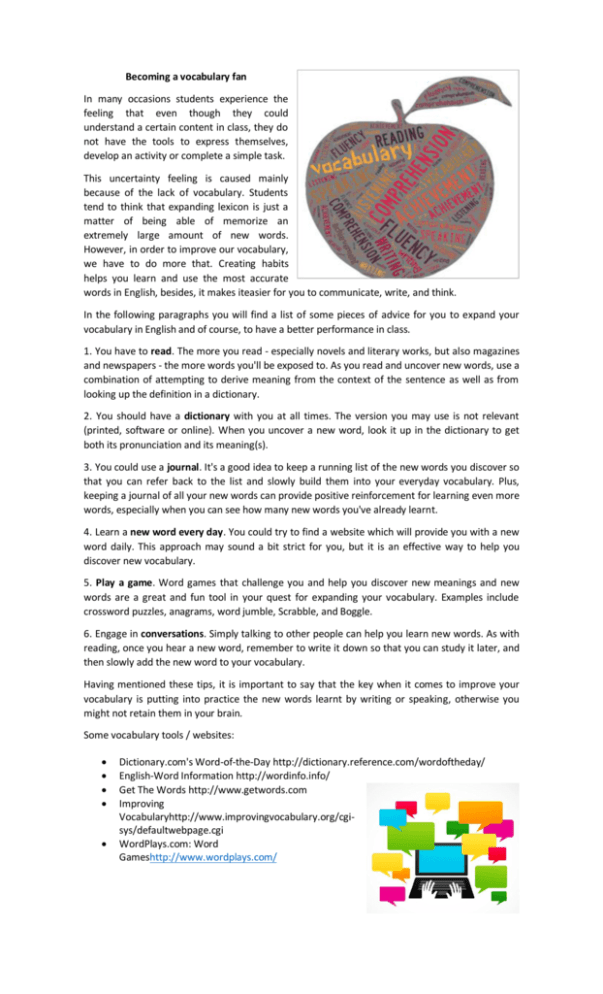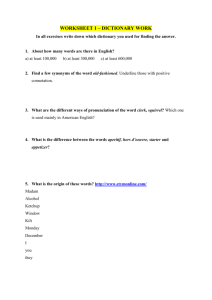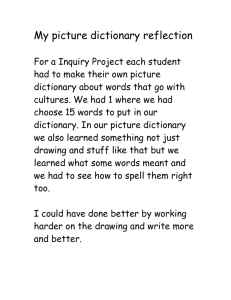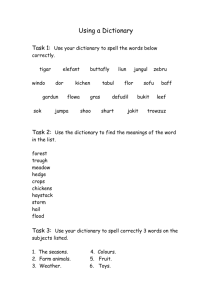Becoming a vocabulary fan In many occasions students experience
advertisement

Becoming a vocabulary fan In many occasions students experience the feeling that even though they could understand a certain content in class, they do not have the tools to express themselves, develop an activity or complete a simple task. This uncertainty feeling is caused mainly because of the lack of vocabulary. Students tend to think that expanding lexicon is just a matter of being able of memorize an extremely large amount of new words. However, in order to improve our vocabulary, we have to do more that. Creating habits helps you learn and use the most accurate words in English, besides, it makes iteasier for you to communicate, write, and think. In the following paragraphs you will find a list of some pieces of advice for you to expand your vocabulary in English and of course, to have a better performance in class. 1. You have to read. The more you read - especially novels and literary works, but also magazines and newspapers - the more words you'll be exposed to. As you read and uncover new words, use a combination of attempting to derive meaning from the context of the sentence as well as from looking up the definition in a dictionary. 2. You should have a dictionary with you at all times. The version you may use is not relevant (printed, software or online). When you uncover a new word, look it up in the dictionary to get both its pronunciation and its meaning(s). 3. You could use a journal. It's a good idea to keep a running list of the new words you discover so that you can refer back to the list and slowly build them into your everyday vocabulary. Plus, keeping a journal of all your new words can provide positive reinforcement for learning even more words, especially when you can see how many new words you've already learnt. 4. Learn a new word every day. You could try to find a website which will provide you with a new word daily. This approach may sound a bit strict for you, but it is an effective way to help you discover new vocabulary. 5. Play a game. Word games that challenge you and help you discover new meanings and new words are a great and fun tool in your quest for expanding your vocabulary. Examples include crossword puzzles, anagrams, word jumble, Scrabble, and Boggle. 6. Engage in conversations. Simply talking to other people can help you learn new words. As with reading, once you hear a new word, remember to write it down so that you can study it later, and then slowly add the new word to your vocabulary. Having mentioned these tips, it is important to say that the key when it comes to improve your vocabulary is putting into practice the new words learnt by writing or speaking, otherwise you might not retain them in your brain. Some vocabulary tools / websites: Dictionary.com's Word-of-the-Day http://dictionary.reference.com/wordoftheday/ English-Word Information http://wordinfo.info/ Get The Words http://www.getwords.com Improving Vocabularyhttp://www.improvingvocabulary.org/cgisys/defaultwebpage.cgi WordPlays.com: Word Gameshttp://www.wordplays.com/








